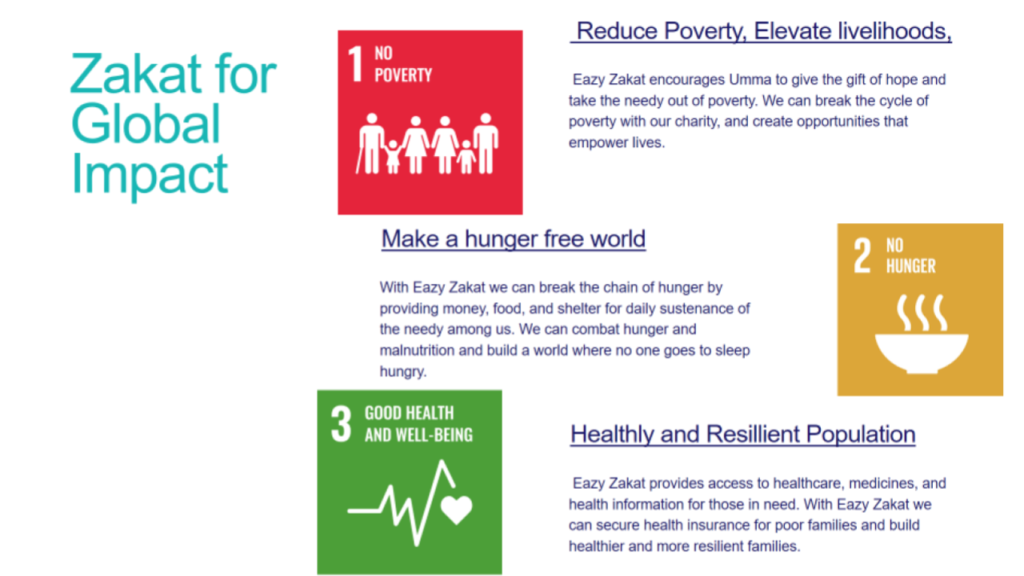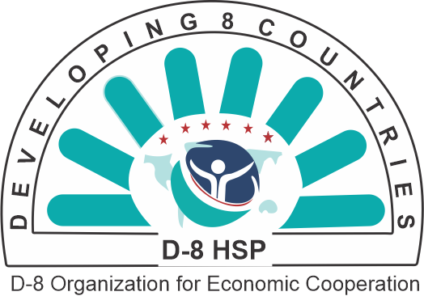D-8 HSP consultations to maximize the power of Islamic Philanthropy for Social Protection in Nigeria
Social Protection has been the undisputed objective of all societies. Globally, diverse strategies are adopted in line with the priority of a people and their Governments. The Sustainable Development Goals helped the world contextualize its development agenda, identify result-driving interventions, save lives, develop the economic capacity of the people, and grow the economy of nations. In line with these goals, the Developing-8 has focused on improving the health and livelihoods of its citizens through the Health and Social Protection Programme (D-8 HSP), which supports governments of Member countries to accelerate progress towards the reduction of poverty, hunger, and improvement of health and livelihoods. These interventions of the D-8 directly contribute to accelerating the attainment of SDGs 1, 2 & 3.
One of D-8 HSP’s key priorities is innovative resource mobilization through her strategic plan 2021-2025 under the thematic area of innovative financing to support D-8 countries in identifying innovative financing strategies to complement government funding for health and social protection interventions. In Nigeria, the HSP consultation on the pooling of Zakat to address poverty, and hunger and improve health and well-being gained momentum following a series of engagements with the United Nations High Commission on Refugees (UNHCR) and has received the endorsement of the UNHCR which pioneers in mobilizing zakat and waqf for displaced people. A diverse Islamic groups under the umbrella of the Association of Zakat and Waqf Organizations in Nigeria (AZAWON), have been engaged and are keen to see how learning from the conventional Zakat collection and payment in Nigeria, the D-8 HSP would generate digital tools, build mobilization capacities and expand the scope to directly reduce poverty, hunger and help Nigeria in reducing health inequalities and burden of out-of-pocket expenses for health through Zakat.
D-8 HSP Zakat Fund Initiative learns from the successes of using organized systems to pool Zakat and other donations as Islamic Philanthropy from D-8 countries such as Malaysia, Bangladesh, and Indonesia and the huge impact it has had in developing and helping the poor out of poverty. Poverty and inequality in Nigeria are on the increase, existing Government poverty eradication programs are unable to meet the needs of a teaming population of over 200 million, behind the scenes also in Nigeria, and almost 1.8% of the nation’s annual GDP is paid unofficially as Zakat. Individually the wealthy invest in the poor to improve their lives, provide shelter and help them out of poverty. Religious groups like AZAWON have over the years also made huge strides using Zakat to help the poor but submits that contributions received were not enough to meet the needs of the people.

Poverty, hunger, and social unrest are intertwined, with each fuelling the other. current realities in Nigeria is that government resources would not meet the needs and effectively support interventions to address key issues such as poverty, hunger, and the health of the people. Available resources are stretched by competing needs. The ongoing conflicts and social unrest coupled with the challenges of the COVID-19 pandemic have further shown the equality gaps between the rich and the poor. Nigeria’s efforts to reach the SDGs 1, 2, & 3 are currently a drag. However, an organized Zakat pooling has the potential to raise at least 1.8% of the nation’s GDP. A judicious way of mobilizing resources that must not be ignored.
Zakat is the basis for equitable redistribution of wealth in Islam and the most viable tool for combating poverty and other social and economic ills in an Islamic society. The D-8 HSP Zakat Project rides on lessons from consultations with different stakeholders and identified challenges such as trust and credibility, poor distribution mechanisms and outreach, lack of innovation, and the unavailability of a legal framework to back legislation that incentivizes dedicated Muslim Ummah whose Zakat save lives annually.
What Would the D-8 HSP do with Zakat?
Following the mandate of the D-8 HSP to improve the health and livelihoods of D-8 citizens and help in growing Member Countries’ GDP, the HSP has identified pro-poor interventions that are conventional yet not exhaustive for growth. These strategies are developed on the concept of using local solutions to solve local problems. Our findings indicate that about 60% of Nigeria’s population are Muslims, out of these numbers one quarter could pay Zakat. There is an urgent need to address knowledge gaps about the benefit of paying Zakat Muslims. The HSP in collaboration with existing Islamic groups and Zakat collecting associations would create awareness and search for the Zakat-able Ummah and encourage them to save lives by paying and improving their relationship with Allah.
The HSP in collaboration with financial institutions and ICT experts would digitize Zakat, make it a seamless donation process, build trust, and restore the creditability of the Zakat systems in Nigeria. Harmonization of all the collecting groups and building their capacities to use digital tools and reduce the burden of face-to-face collection and payment in some cases.
Working with other partners and stakeholders in Nigeria, the HSP is engaging in key decision-making and advocating for the development of a legal framework for tax waivers for dedicated philanthropists.
The D-8 Zakat Fund initiative in summary will develop a Zakat card that allows beneficiaries to have their daily needs and meals, pay for healthcare, build skills, and start-up small businesses that provide for them and enable them to pay Zakat in the future to sustain the entire process. With the consultations done so far, it was unanimously agreed that Zakat can help reduce poverty in Nigeria and would play the most vital role in the equitable distribution of wealth among Muslim communities. D-8 HSP strategy to invest a part of the Zakat into healthcare, the burden of out-of-pocket spending will be drastically reduced in favor of the poor, help mobilize more people in Nigeria’s informal sector and provide them access to a basic minimum package of healthcare coverage as well set Nigeria in the right path to attain Universal Health Coverage.
FAQs
What is Zakat?
Zakat is a mandatory form of charity that is obligatory for all Muslims who meet the necessary wealth criteria. It's considered one of the Five Pillars of Islam, ranking second in importance only to prayer (salat).
Who Pays Zakat?
Muslims who have more than a certain amount of wealth (known as the Nisab) for a specific period (usually one lunar year) are required to donate a specific portion (typically 2.5%) of that wealth to charitable causes.
What is the purpose of Zakat?
Zakat is seen as a way to purify one's income and wealth, promoting social justice and helping those in need. Fulfilling the obligation of Zakat is seen as an act of worship and a way to strengthen the Muslim community.
How is Zakat Distributed?
There are eight categories of people who are eligible to receive Zakat donations, including The Poor (Al-Fuqara),The Needy (Al-Masakin), Those Employed to Administer Zakat (Al-Aamileen), Those Whose Hearts are to be Reconciled (Al-Mu'allafat al-Quloob), Those in Bondage (slaves and captives) (Fir-Riqab),The Debt-Ridden (Al-Gharimeen),In the Cause of Allah (Fi Sabilillah) and The Wayfarer (Ibn Sabil).
What does the Umma Zakat Fund Do?
The D-8 Umma Zakat Fund is a web-based system that connects the benefactors and the beneficiaries seamlessly to ensure a smooth transparent distribution of wealth in line with Islamic principles.
The D-8 Zakat Fund will develop a Zakat card that allows beneficiaries to have their daily needs and meals, pay for healthcare, build skills and start up small businesses that provide for them and enable them to pay Zakat in the future to sustain the entire process.

